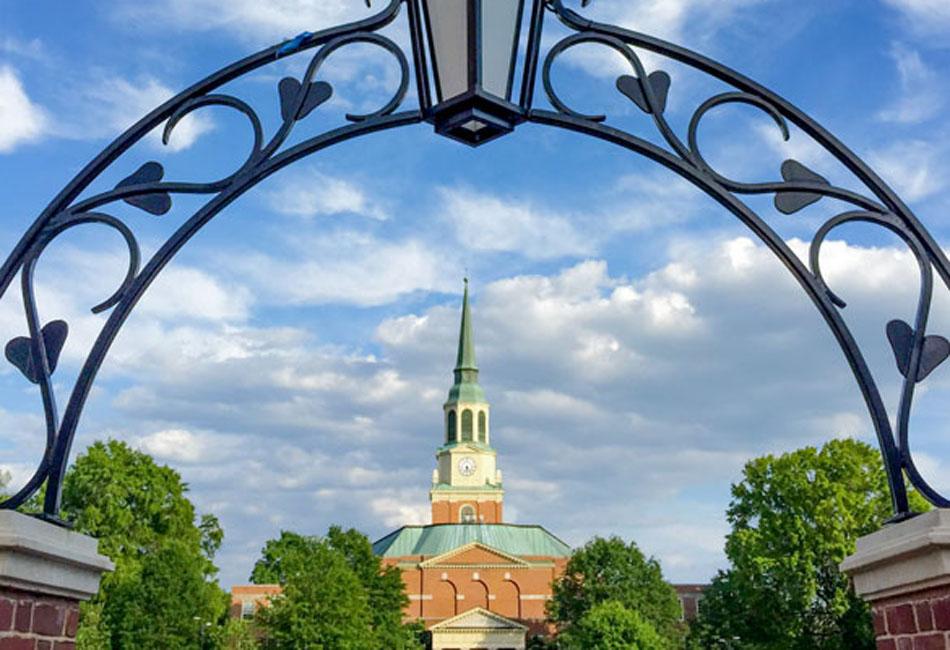The first year of college is anxiety-ridden for many students, but for some it is also characterized by feelings of non-belonging and isolation due to their racial or ethnic identity.
This semester, seniors Tatianna Nelson and Suvra Mostafa co-founded the Asian American Identity Group (AAIG), an organization for students who identify as women and as Asian American to find communities, share personal experiences and explore what their identities mean to them.
“There are a lot of groups [on campus] for people who identify as Asian but none of them necessarily focus on discussing identity and your positionality as a student in this predominantly white space,” Mostafa said.
“That’s why I was so excited about it,” said sophomore Jessica Wu. “I was the only person of color on my freshman hall and am often the only person of color in my classrooms. I’ve never been more aware of my identity than during my time at Wake Forest. The lack of diversity on this campus is still shocking to me.”
Although the university has made progress in terms of diversifying the student population, students of color remain underrepresented.
First-year student Haruyo Koeda echoed Wu’s sentiment.
“At first, I felt somewhat isolated for being different. It’s been so helpful to find other people in this group who understand what I’m going through. It’s a very special connection,” Koeda said.
Lisa Kiang, a professor of psychology who identifies as Asian American, will serve as the group’s faculty advisor.
“Since I’ve been at Wake Forest I’ve been involved in a number of different mentoring programs for women of color just because I do think it’s so important,” Kiang said. “ But this is the first time there’s something specifically targeted for Asian-American women. I’m really glad to be part of it.”
Wake Forest touts a reputation for excellent lower-division faculty advising but some students note that not every pairing is ideal. Younger students expressed joy in making a connection with a faculty member who looks like them.
“I’ve had a difficult time connecting with Asian faculty, and I think it’s so important to strengthen those bonds, especially because there are so few of us,” Wu said.
Building relationships with faculty also extends beyond the purview of academia.
“I’ve never had a mentor, so it’s exciting to have an Asian-American adult that I can look up to and learn from,” Koeda said.
Student members of AAIG will also be learning from each other. Co-founders Nelson and Mostafa emphasize that the group will also serve as a space for peer education. The group’s mission statement mentions unpacking cultural standards and beauty expectations for Asian American women.
Mostafa said AAIG will also discuss “issues like colorism and what it means to be an Asian-American woman in North Carolina and in this changing global and political sphere.”
Kiang also sees great value in discussions like these.
“We are an ethnically-defined group within which there is so much heterogeneity,” Kiang said. “Yet, we are stereotyped as being the model minority or that we’re very well-educated or extremely wealth. It’s difficult to fit the nuances of our lives within the current narrative.”
Even though AAIG is a nascent organization, it is already making profound impacts on the lives of students.
“I never carefully thought about what my identity meant until I came to Wake Forest and found this group. I’m half Chinese and half Japanese, so I feel a lot of tension between those two identities,” Koeda said. “I feel like I’m learning myself for the first time.”
Kiang, whose developmental psychology research focuses on self-concept and identity formation, is well-positioned to support the young women who are enthusiastic about the community AAIG will provide.
“This is an important and effective way for smaller groups who are underrepresented to come together as a collective, especially on a campus where there is not a lot of ethnic diversity,” said Kiang. “Having that validation is so essential.”
So far, Asian-American women students seem to agree.
“I’m really grateful to Suvra and Tatianna for starting [AAIG],” Wu said. “I’m excited to see our group gain traction and for more students like me to know they’re not alone and that they belong here, too.”













